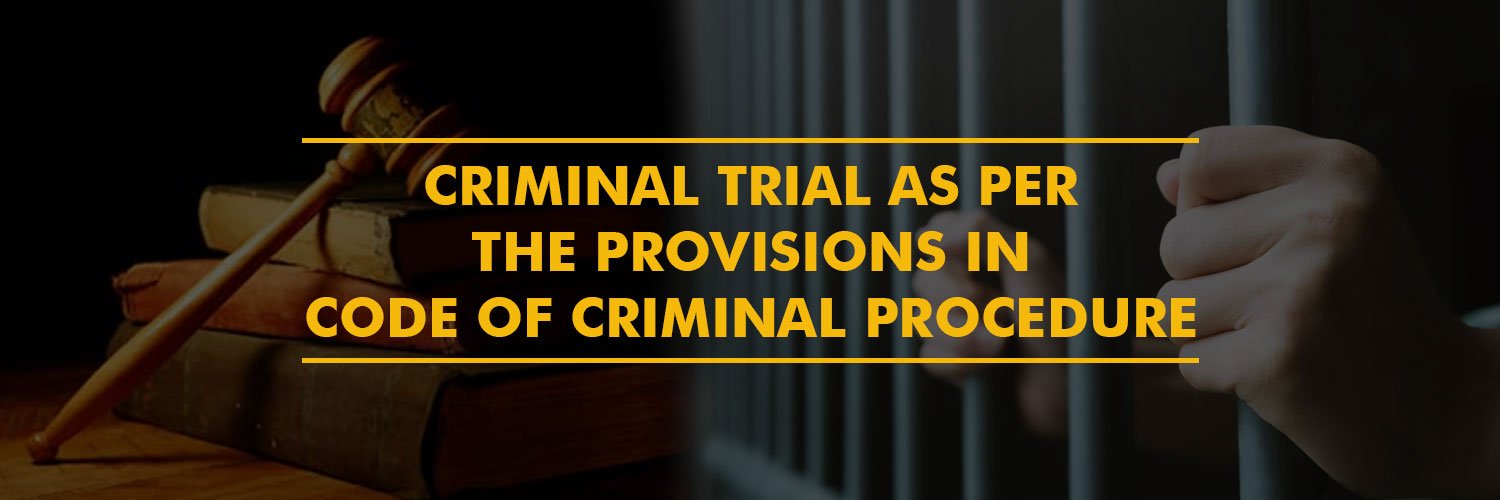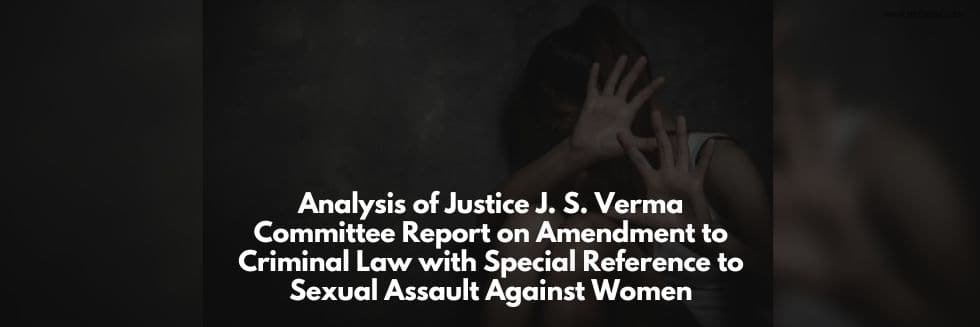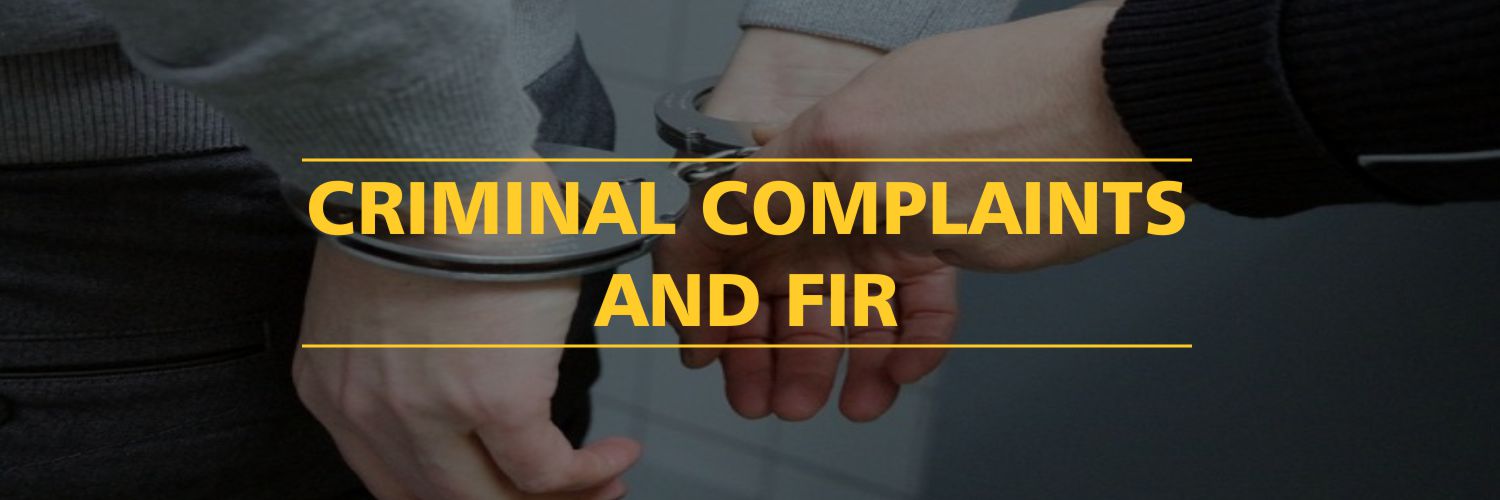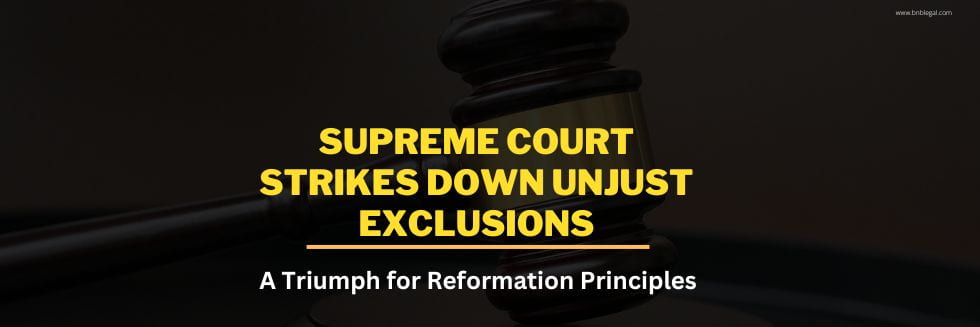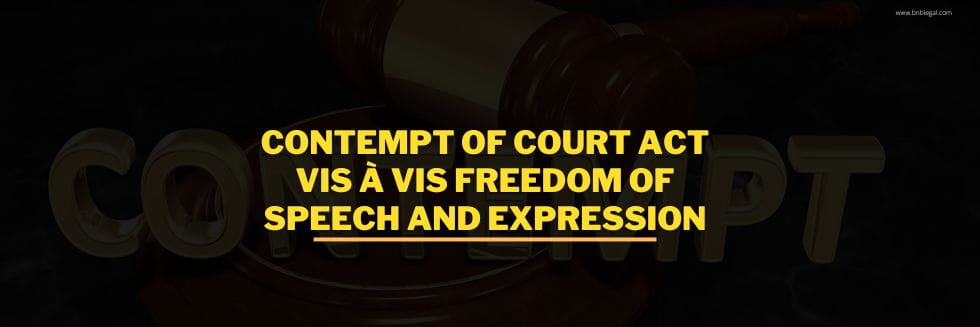Criminal Trial as per the provisions in Code of Criminal Procedure, 1973
Code of Criminal Procedure, 1973 lays down a procedure to be followed in case of a criminal matter. Criminal trials are divided into three categories, namely-
- Warrant case
- Summons case
- Summary trials
1. Warrant cases
- Warrant case is one which relates to offences which are serious in nature and punishable with death, imprisonment for life or imprisonment for a term exceeding two years (section 2 (x) of Crpc, 1973). A warrant case is tried in two manners- one which is registered by the police and another through private complaint.
- Section 238 to 250 of Crpc, 1973 lays down the procedure to be followed in case of a warrant case.
- The procedure to be followed in this case is as follows-
In case of FIR lodged by the police-
Filing a FIR
FIR is registered to the nearest police station by the police under section 154 of the Crpc. Sec 154 states the manner in which it has to be made; it basically sets the criminal matter in motion. FIR is first information reported to the police.
Investigation
It is the second step to be followed after lodging a FIR, the investigation officer has to investigate the facts of the case, examine the records and take statements of different suspects. The investigation officer makes a charge sheet of the case thereafter.
- Framing of charges
- Plea of guilty
Section 241 of Crpc contains the concept of plea of guilty. After framing the charges, the accused is given an option to plead guilty.
Prosecution evidence
Once the charges are framed and the accused pleads guilty, then the prosecution is asked to prove the guilt and provide evidence and statement of witness (PW). This is called examination in chief. The defense has the right to cross examine the witness and clear out any discrepancy.
Statement of the accused
Section 313 of Crpc gives the accused the right or an opportunity to be heard and explain the circumstances and facts of the case.
Defense evidence
If the accused is not acquitted, then defense is allowed to give its witness and evidence, prosecution can cross examine the same. Generally, it is on the prosecution to prove the guilt and defense counsel is not required to provide any evidence.
Judgment
It is the final decision of the court and it gives proper reasons. If the accused is acquitted, then prosecution is given time to appeal for the same.
In case of a private complaint-
- Private complaint is filed under Section 156(3) of Crpc. After the filing of complaint, the court shall examine the facts, witness, complaints and other essential things related to the case.
- The Magistrate may order an enquiry for the case and ask the authorities to submit the report.
- After the submission of the report by the authorities, the court may check whether prosecution has sufficient proofs or evidences, if it seems to the court that it has, then it must entertain, otherwise the complaint will be dismissed. The Magistrate may issue a warrant for the same if he is satisfied with the matter.
2. Summon cases
- Summon case means relating to an offence, and not being a warrant case (Section 2(w) of Crpc.) Generally, offences which are punishable not exceeding two years are dealt with in summon case. A summons case is tried with a less formality. Section 251 to 259 of the Crpc states the procedure to be followed in this case.
- The procedure to be followed in a summon case is as follows-
Pre trial
Section 251 to 259 of Crpc states the provisions for the pre trial. The process is simple.
Filing of charges
Formal charges are not formed in these cases, the person appears before the judge or the magistrate and then he decides the offence.
Plea of guilty
The magistrate after deciding the offence asks the person whether he pleads guilty or not, if he pleads guilty then the magistrate convicts him as per the offence.
Absence of accused
If the accused doesn’t appear before the magistrate and pleads guilty, he has to pay a fine amounting to Rs. 1000. He must send a letter accepting his guilt.
Prosecution and defense evidence
If the accused does not plead guilty, then the trial begins and the parties are asked to produce their witness and evidence.
Judgment
3. Summary Trials
- Basically, these are fast track proceedings and the aim is to settle the disputes in minimum time and in one sitting only. These trials are reserved for petty offences like cases related to promissory notes, etc.
- Section 265 to 265 of Crpc contains the procedure ot be followed in case of a summary trial.
- The procedure to be followed in summary trials is same as that in case of summon cases
- One important point to note here is that no sentence of imprisonment exceeding 3 months shall be passed in case of conviction.
